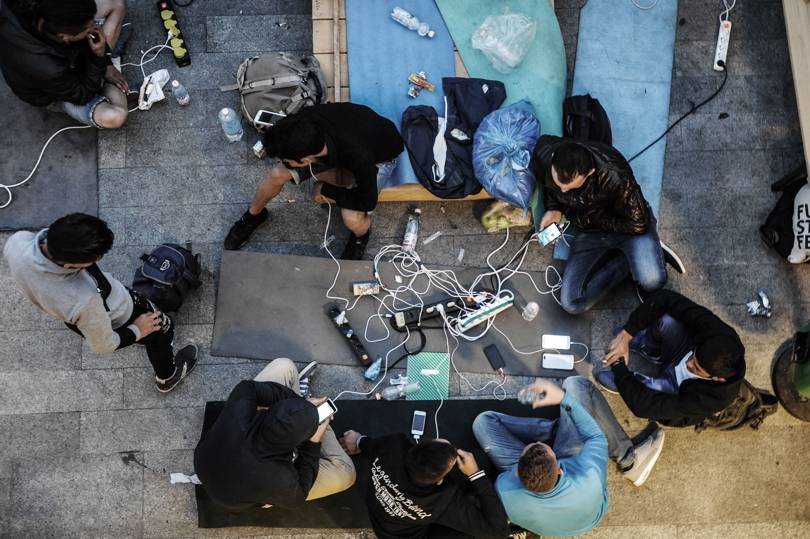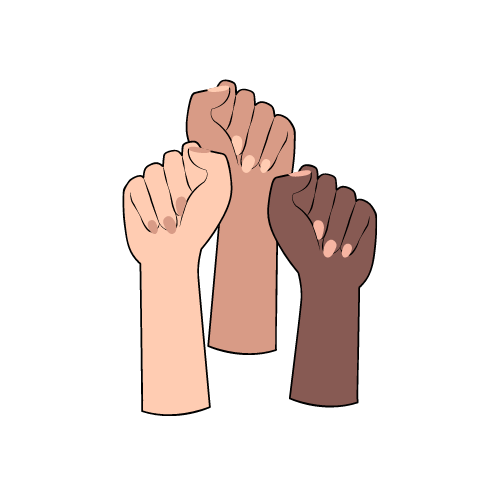If you would have to suddenly flee your home, what would you take with you? Probably your smartphone, right? It is almost impossible to imagine our lives without a smartphone by our side. As well for refugees fleeing to Europe, smartphones are often the most important item they carry with them. Refugees use smartphones for several different purposes. The first one is communication. Not only do they use their smartphone to communicate with friends and family, they also use them to communicate with ‘underground networks’ or smugglers to arrange their journey. Furthermore, smartphones are used as a tool for translation and navigation. In some instances, refugees have used their phone to send SOS messages when they were in danger on the Mediterranean. Finally, smartphones are used to acquire information. This may be information about routes, border closures, how to avoid the police, asylum policies, which destination to head for, and to find smugglers (Kaplan, 2018).

Although smartphones make the journeys easier, they can also be threats. Misinformation is spread by smugglers on social media. Refugees often rely on the smugglers and this misinformation can lead to dangerous situations, as well as a very unrealistic image of Europe and the journey ahead. Another threat is surveillance by extracting data from phones. When refugees use public Wifi Networks to connect their smartphones, they risk becoming ‘visible’: “refugees’ phones often leave digital traces through utilizing public WiFi networks and posting on social media” (Kaplan, 2018). Authorities use smartphones for migration control purposes and extract data from the phones and social media profiles. Germany and Denmark passed a legislation in 2017 that allows them to extract data from refugees’ phones in order to tackle fraudulent asylum applications (Thüer et al., 2018): According to the Dublin regulation, you have to apply for asylum in the first EU country you arrive in. That means that when refugees arrive in Greece, they have to apply for asylum there. Greece is however often not a desired location, as the process in Greece is very slow and unemployment rates are very high. When you would travel from Greece to Germany and apply for asylum in Germany, Germany has the right to extract data from your phone to check whether you were in another EU country first. If they can find evidence of this, you will be deported. This right to extract data from phones is a huge invasion on the privacy of refugees.
As refugees are already very vulnerable, it is crucial that they are made aware of these threats, learn how to avoid them, and how to manage them. A few NGOs have already picked up on this and have begun meeting refugees in the digital space. One of these initiatives is InfoMigrants. InfoMigrants is “a news and information site for migrants to counter misinformation at every point of their journey: in their country of origin, along the route, or in the places where they hope to start a new life” (InfoMigrants, n.d.). According to the NGO, “(…) migrants are in need of verified and balanced information, which is often difficult for them to access during their journey” (InfoMigrants, n.d.). Another initiative is Refugee.Info, an information platform where refugees can also chat in different languages to ask questions and gain information. These initiatives are very valuable to help refugees find trustworthy and correct information, and reduce dangers along the route. I couldn’t however find initiatives that are actively informing refugees about their digital rights, even though these would be of incredible importance, because as Thüer at al. (2018) said: “The right to asylum should not serve as a test field to expand state surveillance”.
As the digital is playing such a big and important role not only during, but also after the flight, it is very important to also start providing more humanitarian assistance online. The Internet is changing migration and therefore organizations should change as well. When NGOs become more integrated into the digital lives of refugees, they could prevent refugees from dangers and at the same time empower them to make them less vulnerable during their journey. Especially in the field of data protection, it would therefore be important for NGOs to focus more on the digital world refugees live in and support them not only on the ground, but also online.
References
InfoMigrants. (n.d.). About. Retrieved from https://www.infomigrants.net/en/about
Kaplan, I. (2018, October 26). How Smartphones and Social Media have Revolutionized Refugee Migration. Retrieved from https://www.unhcr.org/blogs/smartphones-revolutionized-refugee-migration/
Thüer, L., Fanta, A., & Köver, C. (2018, July 16). Asylum Procedure: Cell Phone Search Has No Benefits. Retrieved from https://www.unhcr.org/blogs/asylum-procedure-cell-phone-search-no-benefits/

